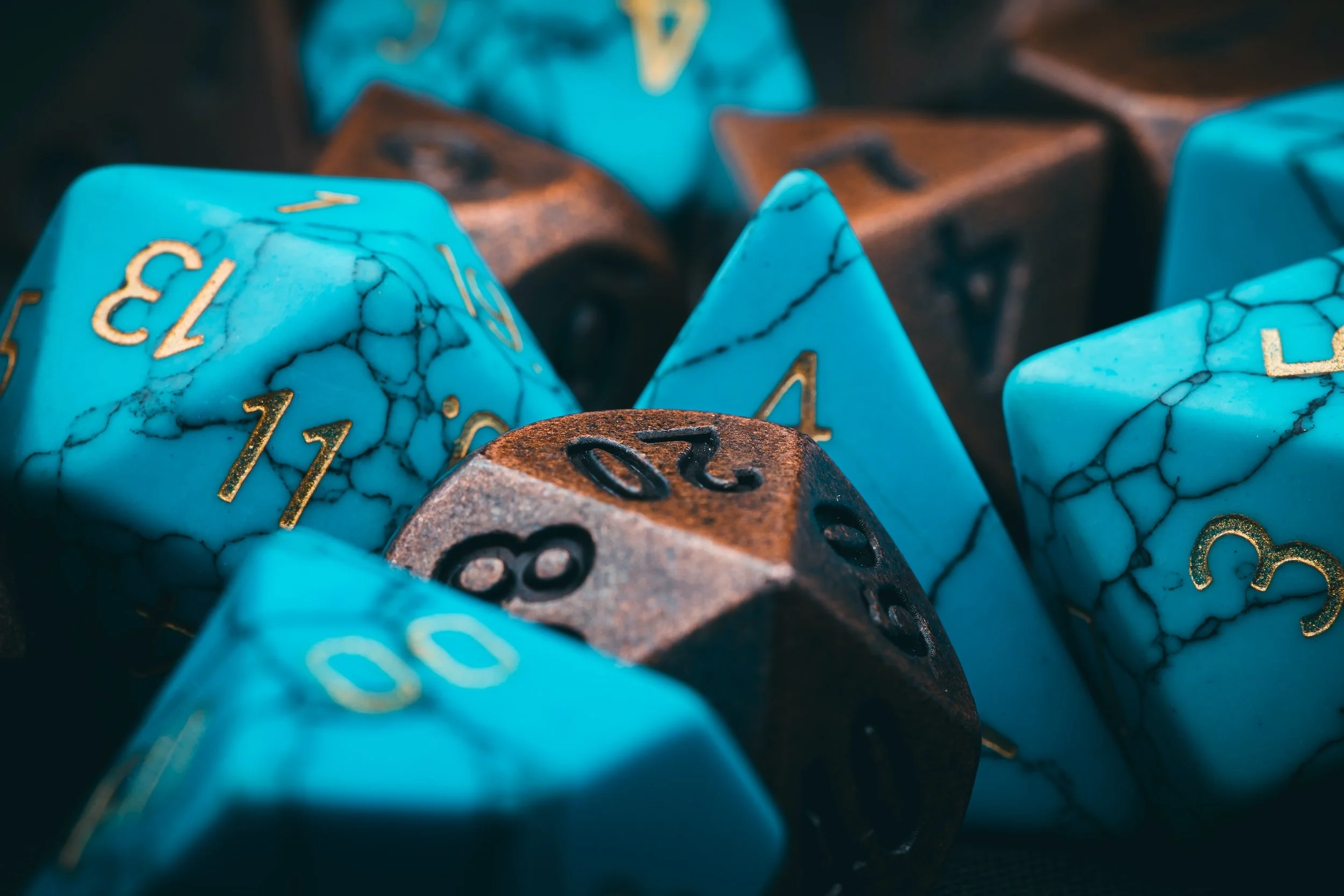Still Good
In my favorite Disney movie, Lilo and Stitch, Stitch tells the Grand Councilwoman that the family he has found is “little and broken but still good.”
As someone who grew up always thinking in absolutes, this idea was unusual to me, but very important to encounter. I struggled - and still do - to not think of things as black or white, wonderful or terrible. And coming from a movie where I strongly identified with the main character - a little girl who grows up doing things differently from her peers and with no friends until a literal alien arrives from outer space - it was a great way for me to open my eyes to the “gray areas” of thinking.
I had an opportunity to practice this type of thinking this week as I permanently joined a D&D group for the first time since my longtime group ended abruptly several months ago.
It took all my coping mechanisms to get over the end - with absolutely no warning - of my group that had been meeting almost every week for the last two and a half years. I reached out to my support system, tried to distract myself in every way possible, and took my therapist’s advice to “control what you can” by writing a novelization of the story so I could end it in my own way.
Part of me wanted to find another group right away, but I was scared of getting burned again. This was the first group I’d been a part of where people weren’t extremely unreliable, horrible writers, or toxic to the point that I felt highly uncomfortable. Getting into my old group took such a huge amount of pure dumb luck that I didn’t think I’d be able to find a good group again, and focused on my own healing even though I missed it immensely.
Eventually, though, I decided to give it a shot. I looked around online and found a local group that I attended for two sessions, but it was such a different system of gameplay that I couldn’t figure out how to make it work. I couldn’t get involved in the story, and although I enjoyed meeting new people, I couldn’t enjoy the actual game. I ended up withdrawing from the game and staying in touch with the Dungeon Master (DM) and a few other people in the group, but I was still missing the activity that I’d gone there for.
And then, last week, my dear friend John* (name changed for privacy) asked if I would be interested in joining the group that he’s a part of for one session - and maybe more.
I instantly made excuses. I knew one person in the group with a really bad work ethic, and I assumed that - like in my old group - if one person didn’t show up, the rest of us wouldn’t be allowed to play. I assumed that no one would want me joining after the first session and that the group wouldn’t be reliable and that it would just be another letdown like the groups before the one that lasted for so long.
I then realized that, several times in the past, I had let these assumptions get between me and the opportunity to try something new. Even though this wouldn’t be the same exact thing as my old group, it could still be good - something that my all-or-nothing thought patterns that I learned about in Cognitive Behavioral Therapy (CBT) doesn’t usually let me consider.
And so, I took my friend up on his offer. I asked him to connect me to the DM of this group, who told me that I could pick between several characters the people in the party had already met. He gave me plenty of backstory information, and I ended up selecting a paladin.
That was the first difference - for the last 2 and a half years, I played a bard from level 1 to 20. This was a level 3 paladin of a different race (human, this time) and the setting was from official content (the Baldur’s Gate series of games) as opposed to an original world made up by my previous group’s DM.
I found plenty more differences when I actually went to the session. I only knew two people - my friend and the person with the bad work ethic. The group was bigger, which I thought would be a problem but ended up not being one. I was behind on content instead of knowing better than anyone else what was going on.
But somehow, it was still good.
I got that wonderful feeling of sitting down with some new people - new friends - and playing one of my favorite games. Even though I was playing a different character in a different setting with different people, the feeling of finding a great group was still there.
And so, I asked at the end of the session if I could become a permanent member of the group. I was offered an enthusiastic “yes!” from everyone and was able to put D&D on my calendar for the first time in months.
This experience has helped me realize that my thought patterns may be limiting my experiences. If I want everything to be perfect and won’t settle for less, I won’t have the opportunity to find things that are “still good” - enough to make me happy even if they aren’t exactly as I imagined them.
Michelle Cohen, a writer in the Chicago area, was diagnosed with OCD at age 3. She hopes to educate others about her condition and end the stigma against mental illness.

